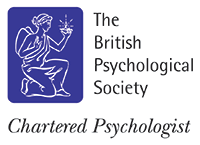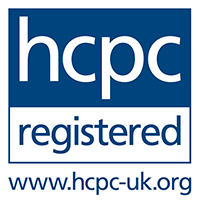What titles can Psychologists use?
The Health Professions Council was given statutory responsibility for the registration of professional applied psychologists from July 2009. From August 2012, only psychologists who are registered with the Health & Care Professions Council (HCPC) may use titles protected by the HCPC. These are:
Clinical Psychologist
Counselling Psychologist
Educational Psychologist
Forensic Psychologist
Health Psychologist
Occupational Psychologist
Sports and Exercise Psychologist
Registered Psychologist
Practitioner Psychologist.
The term ‘Chartered Psychologist’ refers to a grade of membership of the British Psychological Society (BPS). The Society is authorised to confer that title by its Royal Charter. Use of the title is legally restricted. It is granted only to psychologists who have achieved and maintain appropriate professional qualifications and experience which have been vetted by the Society.
Registration by the HCPC and Chartered Membership of the BPS requires that the psychologist:
– has appropriate qualifications and experience,
– is in active practice according to the current professional standards, and
– has undertaken appropriate Continuous Professional Development (CPD).
However, a person does not need to be registered with the Health Professions Council if they do not use one of the protected titles.
A person does not need to be a member of the British Psychological Society if they do not use the title “Chartered Psychologist”.
Further, neither the HCPC nor the BPS is authorised to protect the basic title ‘psychologist’. Therefore a person does not need to be in any way qualified in psychology to use the title ‘psychologist’.
That unqualified people can and do refer to themselves as ‘psychologists’ may create confusion for the public, other professions and the legal system. But unless such people cross other boundaries, such as laws concerning misrepresentation of qualifications, deception and fraud, they can continue to use the title legally and without hindrance.
Neither registration with the Health & Care Professions Council (HCPC) nor membership of the British Psychological Society (BPS) is mandatory for professional applied psychologists in the United Kingdom.
In other words, a psychologist who is registered with the HCPC or a Chartered member of the BPS is definitely a fully qualified psychologist and currently in practice. But a psychologist can be fully qualified and currently in practice without either being registered by the HCPC or being a Chartered member of the BPS. Registration by HCPC or Chartered membership of the BPS does not qualify a psychologist as an expert witness nor does lack of registration or membership disqualify them from working as an expert witness.
A further consequence of the current legislation is that both fully qualified and experienced psychologists and people who are not qualified in psychology at all can legitimately refer to themselves as any kind of psychologist, so long as they do not use one of the protected titles. Thus titles such as:
Business Psychologist
Child Psychologist
Consultant Psychologist
Criminal Psychologist
Expert Psychologist
Graduate Psychologist
Neuropsychologist
Organisational Psychologist
and others are in use, both appropriately by fully qualified and experienced psychologists and inappropriately by some people who are not psychologists at all.




